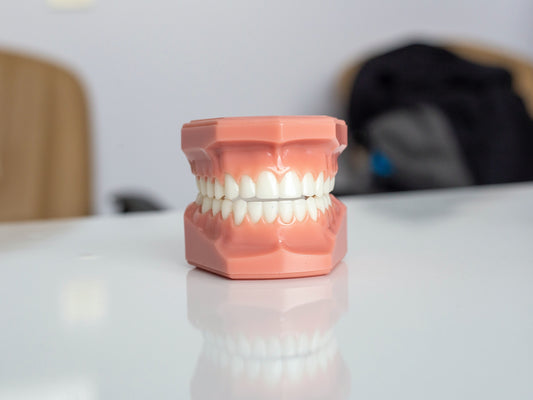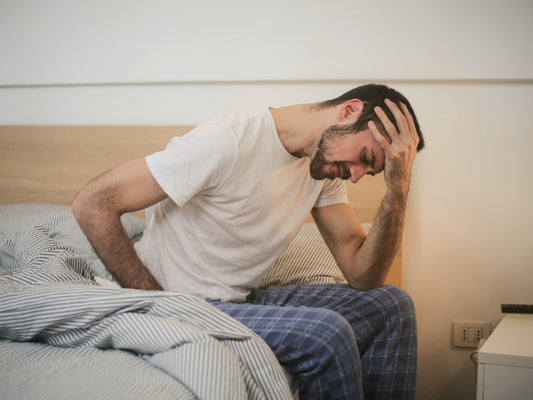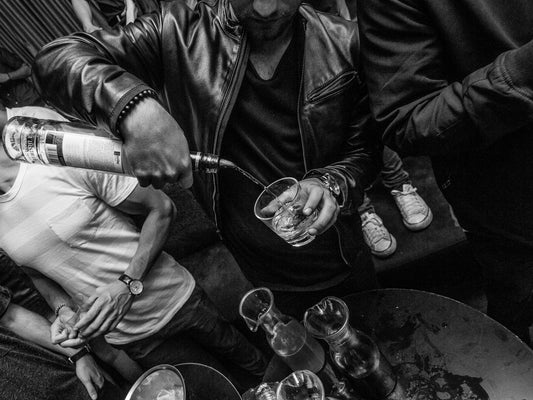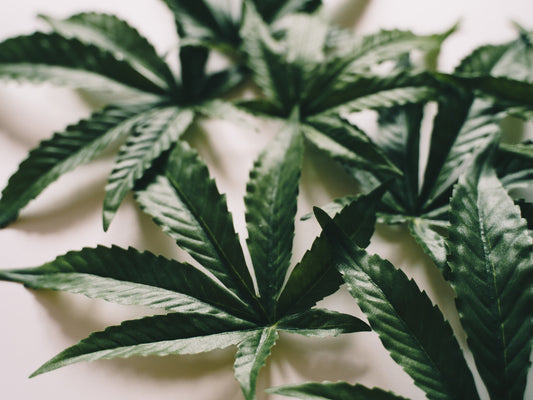Summer’s almost here! Tis’ the season of festivals, pool parties, beach parties, and garden parties—what we’ve all been waiting for. But summer isn’t always as carefree as we’d like it to be; sunburns, mosquitoes, and excess sweat can be enough to make us want to retreat back into AC.

Just as you gear up with sunscreen and bug spray, be sure to guard against summertime dehydration with a healthy dose of Hydrant. Whether you’re lazily soaking up the rays, sipping wine on a terrace, binging on beach beer, or staying active, keeping your hydration in check is essential to your summertime health.
Know the Risks of Dehydration
Dehydration just gives you a bit of a headache, right? Wrong. Dehydration is a big threat to your body. (On the extreme end, very serious dehydration is a medical emergency!) Being dehydrated leads to a lower blood pressure, reduced cognitive performance, increased risk of urinary tract infections, and dizziness [1]. Prolonged and serious dehydration can lead to further, more serious symptoms. Not convinced? Here are ten more reasons to hydrate!
Know the Causes of Dehydration:
The Triple Threat
The Sun
One of the best things about the sun is that it’s hot hot hot! However, the heat is dehydrating and makes us sweat. Out of 2.5 liters of water that you lose on average per day, about 500 milliliters is lost through your skin, and this only increases when you’re hot and sweaty [2]. When water evaporates from your skin it takes heat energy away with it—the main reason why sweating is such an effective tool of thermoregulation (keeping your body at a healthy temperature, no matter the outside weather). However, the water you lose through sweat has got to come from somewhere! The more you sweat, the less water is available to your body for its normal functions.

The Alcohol
“Alcohol is dehydrating” seems at face value like a counterintuitive statement. After all, alcohol is a liquid, and dehydration happens when you don’t drink enough. Truth is, alcohol is dehydrating. Once metabolized in your gut, alcohol causes a decrease in the production of a hormone in your body called ADH, produced by the posterior pituitary in your brain. ADH, or antidiuretic hormone, is released when you need to reduce the amount you urinate, so that you lose less water from the body. The more dehydrated you are, the more ADH is made. Alcohol stops the production of this hormone, so you urinate more, and become more and more dehydrated. So after a pint of beer, you actually pee more than a pint of urine. In other words, drinking alcohol dehydrates your body [3]. As well as that, drinking more alcohol than your body can handle may lead to vomiting, another leading cause of dehydration.
The Activity
As fun as they are, everything about our favorite summer events is waging war against our hydration levels. You’re likely to do a lot of physical activity, such as dancing, walking around venues and campsites, or playing volleyball on the beach. Each of these activities is dehydrating, and can make you hot and sweaty, increasing your water loss through sweat. You probably won’t be eating much fresh food either, grabbing from food-trucks, firing up the BBQ, or popping into a corner shop. All those chips and burgers have a low water content, and so won’t contribute to your hydration levels like fresh food will.

Know the Symptoms of Dehydration:
What to Look Out For
Skin Pinch Test
If you’re dehydrated, your skin will be too. You can test for dehydration with an easy pinch test. This test looks at skin turgor, the elasticity of your skin, which is affected by the water content of your body.
Give it a go. Gently pinch your skin (your cheeks, or the backs of your hands are the best places to try this) and watch what happens to your skin when you let go. If your skin bounces back quickly, and you can hardly tell you’ve pinched it, then it’s likely that you’re well-hydrated. However, if your skin is a bit wrinkly for a few moments after you’ve let go, or takes a while to go back to normal, you might be dehydrated [4].
Dark Urine
Your pee should be a nice pale golden or amber color. This color is the result of a pigment naturally found in your urine. The more concentrated your urine, the darker in color your pee appears [5]. The concentration of your urine is closely related to how hydrated you are. The better hydrated you are, the more water your body can spare, and therefore there’s more water in your pee and it’s less concentrated. If you’re dehydrated, your body is holding onto as much water as possible, and so it only allows the minimum amount to leave your body as urine, resulting in a dark, concentrated urine that is less frequent. So, if you notice dark pee, and that you’re needing to urinate less frequently, you’re probably dehydrated!
Also look out for….
Headaches, tiredness, dizziness, fatigue, dry mouth and lips… these might all be signs that you are becoming dehydrated [6].
Know the Strategy:
How to Keep Hydrated in the Summer Sun
Before
Start every day and every event hydrated. It’s much harder to become seriously dehydrated if you’ve got a good place to start from! Drink a glass of water when you get up in the morning or have some fruit. Even milk on your cereal will help!
During
Keep hydrated while you’re out and about. Try and plan in some fresh snacks, such as watermelon or strawberries as these have a high water content and will give you an extra little hydration boost. You could also carry a water bottle, even if it’s just a little one that fits in your handbag. This will remind you to keep drinking little and often, keeping that body water level topped up.

When you’re drinking alcohol, be extra careful. Alternate your alcoholic drinks and water. However, because alcohol is a diuretic, a lot of the water will be lost straight away in your urine, so you need to carry on drinking water after you’ve stopped drinking alcohol to allow your body to top up again. Be particularly careful when drinking over a long period of time—this is when you are most at risk!
After
Don’t wait until you feel dehydrated to get some extra fluids. It’s hard to over-hydrate, so try and finish the day well hydrated. And as we’ve said, drink plenty of water for several hours after you’ve been drinking alcohol.
Get the best hydration

Sometimes, particularly when you are really dehydrated, you need a little help to get your body full of water again. But water alone isn’t enough for good hydration. Hydrant is a great way to give yourself a helping hand when it comes to hydration: it contains the perfect balance of electrolytes for maximal hydration, to hydrate you fast. Why not have one when you get home from a day in the sun, or keep a sachet with you for a quick fix for all your hydration needs?
At Hydrant we want to help you make the most out of fun in the sun. Happy hydrating!
Writer: Ailsa McKinlay
Editor: Elizabeth Trelstad, www.hellobeaker.com
References
[1] Nutrition.org. Dehydration in the Elderly. - Although this article focuses specifically on elderly people, the general effects of dehydration on the body are the same for everyone, although they may lead to slightly different health care outcomes in different age groups.
[2] “Regulation of Water Balance,” section 7.3 from: An Introduction to Nutrition - This textbook extract provides a great summary of water intake and loses from the body.
[3] Why does drinking alcohol cause dehydration? Karl S. Kruszelnicki. - This article explains the dehydrating effects of alcohol in a very simple way.
[4] Skin Tugor. Medline Plus. - This website, part of the US National Library of Medicine, presents a simple summary of skin turgor in accessible, yet scientific language.
[5] Is Blue Urine Normal? Urine Colours Explained. Heathline. - Here’s a run down of all the different colors your pee may be, and what each means.
[6] Dehydration. NHS. - A simple guide to dehydration as a health condition from the UK’s National Health Service.
[7]. Best Electrolyte Powders is a website with a just-the-facts comparison between the five big electrolyte powder brands

















